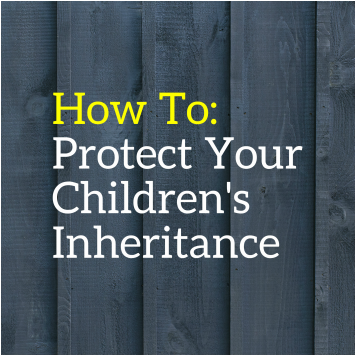However, there are several other less-discussed reasons that might prompt someone to hire an estate planning attorney. These reasons, while personally very important to the person seeking to create the plan, are rarely written down on a new-client intake questionnaire, or voluntarily mentioned during initial planning discussions.
Below we’ve described several of these issues.
Rewarding Certain Behaviors
At the most basic level, we have found that clients want to protect and provide for loved ones, but sometimes they need a guarantee that a beneficiary will have “earned” his inheritance before any assets are disbursed. Wills and trusts can be structured to include incentives for achieving milestones. Parents and grandparents often use estate plans to reinforce certain values and promote success among heirs.
For example, it’s not uncommon for a parent to require an adult child to graduate college with at least a certain grade point average before receiving any money outside of tuition and lodging. We’ve even seen parents require children to complete a personal finance and budgeting course before they can receive access to a full inheritance. An incentivetrust should clearly define a grantor’s objectives in the setting of goals that a beneficiary is being asked to achieve. Simply saying “must have good grades” or “must maintain a healthy lifestyle” is not definitive enough.
Addiction Treatment & Prevention
One of the more sensitive issues that clients are reluctant to broach is having a beneficiary with a history of addiction. While it can be uncomfortable for some clients to talk about, we have found that a frank discussion is the first step to helping design a plan that protects a client’s entire family. A trust can set up guidelines for how to pay for an afflicted beneficiary’s living expenses (i.e., medical bills, rehabilitation costs, tuition, lodging and food), and it can also include incentives to reward positive steps toward recovery. These encouragements may come in the form of additional distributions being released if the child reaches or maintains certain benchmarks, such as holding a full-time job or attending counseling.
Inheritance Jacking
You’ve probably seen it or at least heard about it. Someone died and relatives quickly descended on the decedent’s home to raid the assets. While it’s definitely a crime, such behavior rarely goes prosecuted since almost no one reports it to authorities, because it’s considered a “private family matter.” Heirlooms and keepsakes disappear, and often the true intended recipient will never even know the theft occurred. There are lots of typical justifications: “I was Dad’s favorite;” “Aunt Sue owed me money;” “I was the closest to Grandma.”
You can help prevent this sort of thievery in your own family by making your estate plan more transparent. You should inventory your assets and personal belongings (i.e., family photos, jewelry, guns, artwork, collections, etc.) and send copies to your estate planning attorney, your executor, and your trustee. In addition, you should consider informing beneficiaries of what they are intended to receive and have each one sign a letter of understanding.
Open the Conversation
To assist us in providing the best protections and service that our clients and their families deserve, we have found that it is important to ask our clients to list any risk factors or goals for their heirs? Think beyond the role of life insurance or the desire to avoid probate administration. What else is happening in your personal life that would be a motivation for structuring a strong estate plan?
We hope this information was useful to you and helps you and your family. If you have any questions, don’t hesitate to call our office at 650-516-7002.
You can also email me directly at [email protected].

 RSS Feed
RSS Feed
